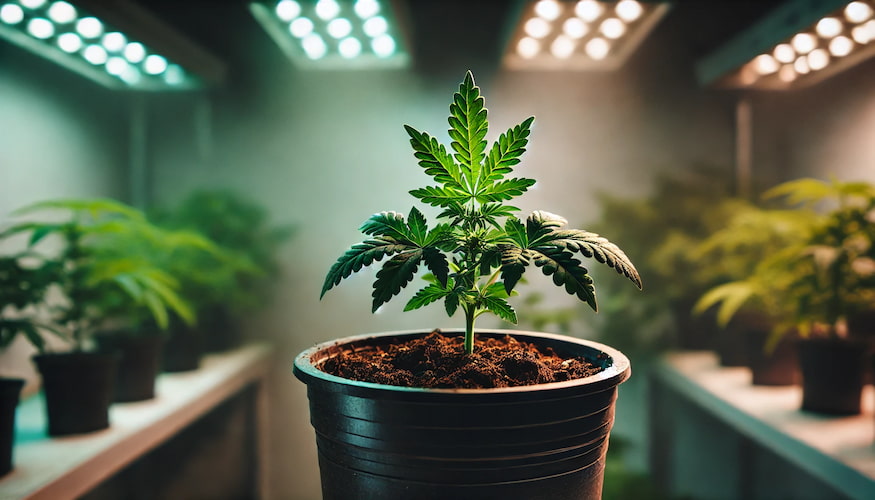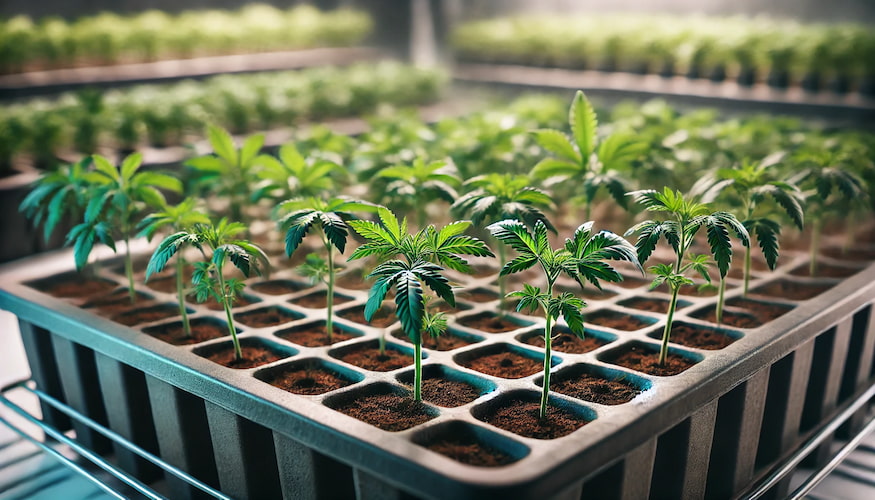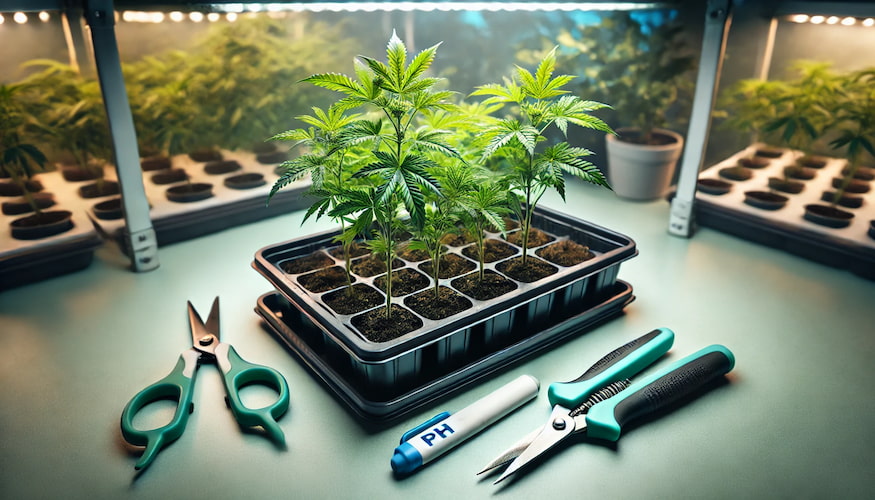Introduction: The Federal Perspective on Cannabis Clones
As the owner of IWantClones.com, I’ve had to navigate the complex world of federal cannabis regulations. While state laws often take center stage, understanding the federal stance on cannabis clones is crucial for any serious grower.
The Current Federal Status of Cannabis
Let’s start with the basics:
- Cannabis, including clones, remains a Schedule I controlled substance under federal law
- This classification applies to all parts of the plant, regardless of THC content
- However, enforcement priorities have shifted in recent years
The Impact of the 2018 Farm Bill
The 2018 Farm Bill significantly changed the landscape for hemp:
- Legalized hemp at the federal level (defined as cannabis with less than 0.3% THC)
- Created a legal pathway for hemp cultivation, including clones
- Did not change the status of high-THC cannabis
Federal Enforcement Priorities
While cannabis remains federally illegal, enforcement has evolved:
- The Cole Memorandum (2013) de-prioritized federal enforcement in states with strong regulatory systems
- The memorandum was rescinded in 2018, creating uncertainty
- In practice, federal enforcement has remained limited in states with legal cannabis programs
Interstate Transportation of Clones
A critical area of federal law to understand:
- Transporting cannabis clones across state lines remains federally illegal
- This applies even between two legal states
- Penalties can be severe, including federal trafficking charges
Federal Regulations and Medical Cannabis
The federal stance on medical cannabis:
- No federal medical cannabis program exists
- The FDA has approved some cannabis-derived medications (e.g., Epidiolex)
- Federal law does not recognize state medical cannabis programs

Research and Cannabis Clones
Federal regulations impact cannabis research:
- DEA-licensed facilities can cultivate cannabis for research
- The process for obtaining research-grade cannabis is complex and limited
- Recent changes aim to expand research opportunities
Banking and Financial Services
Federal prohibition impacts banking for cannabis businesses:
- Many banks refuse services to cannabis-related businesses
- The SAFE Banking Act, if passed, could provide protections for financial institutions
- Currently, many clone producers operate on a cash-only basis
Tax Implications of Federal Prohibition
Federal tax law creates challenges for cannabis businesses:
- Section 280E prevents businesses from deducting ordinary business expenses
- This results in a much higher effective tax rate for cannabis companies
- Impacts pricing and profitability of clone production
Federal Employment Policies
Federal employees and contractors face restrictions:
- Use of cannabis, including clones, can result in loss of federal employment
- Security clearances can be impacted by cannabis involvement
- Federal drug-free workplace policies remain in effect
The Future of Federal Cannabis Regulations
The landscape continues to evolve:
- Various federal legalization bills have been proposed
- Administrative rescheduling remains a possibility
- International treaty obligations complicate full federal legalization
Navigating Federal and State Laws
For clone growers, balancing federal and state laws is crucial:
- Comply fully with state regulations
- Be aware of potential federal risks, even in legal states
- Stay informed about changing federal policies and enforcement priorities
Conclusion: Staying Informed and Compliant
While federal law creates challenges for cannabis clone growers, understanding these regulations is crucial for operating safely and responsibly. At IWantClones.com, we’re committed to helping our customers navigate this complex landscape.
Remember, federal law can impact your operation even if you’re fully compliant with state laws. Always consult with a legal professional for advice specific to your situation.
Stay informed, stay cautious, and keep growing responsibly!














